Privacy is Learned: Call for feedback on privacy educator resources
The future of library-based privacy education needs YOU! Feedback is invited through January 2026 on resources from the National Forum for Privacy Literacy Standards and Competencies.
The future of library-based privacy education needs YOU!
Libraries Stand for Privacy: National Forum for Privacy Literacy Standards and Competencies invites feedback on resources for library-based privacy education.
Feedback is welcome from library workers, Library and Information Science (LIS) faculty and graduate students, and library patrons and community members.
Please share this call for feedback widely within your professional and service communities! A call for feedback toolkit is available, including a one-pager, fact sheet, printable promotional bookmarks, and graphics to create custom materials. Please report technical issues and other corrections or concerns to Sarah Hartman-Caverly: smh767@psu.edu.
Following the national forum in March 2025, select working group members transcribed and analyzed forum artifacts to create three practitioner-facing resources to support privacy education in libraries:
Framework for Privacy Literacy
The Framework for Privacy Literacy presents Principles of Privacy and interprets them as learner standards (“What privacy literate people know”) and practitioner competencies (“What privacy literacy educators do”).
Review the Framework for Privacy Literacy (via Google Drive)
Share feedback on the Framework for Privacy Literacy (via Springshare LibWizard)
Privacy is learned.
Privacy is human.
Privacy is agency.
Privacy is personal.
Privacy is social.
Privacy is dynamic.
Privacy is protection.
Privacy is valuable.
Privacy is a public interest.
Privacy is regulated.
Roadmap to Privacy Literacy Programming in the Library
This roadmap provides library leaders and privacy advocates a high-level plan for implementing privacy literacy programming in the library. The roadmap progresses through four phases:
Explore,
Commit,
Establish, and
Sustain.
Each phase recommends activities for implementing privacy literacy programming in the areas of
Staffing,
Resources,
Infrastructure and Governance,
Community, and
Collections.
Resources to support privacy literacy programming are recommended at points of interest along the roadmap.
Review the Roadmap to Privacy Literacy Programming in the Library (via Google Drive)
Share feedback on the Roadmap to Privacy Literacy Programming in the Library (via Springshare LibWizard)
Privacy Literacy Self-Study Guidebook
With growing social justice issues related to algorithmic bias and the disparate impact of surveillance, it is more important than ever for librarians to assume leadership in advocating for and educating about privacy. Despite this growing need, librarians often report feeling overwhelmed, intimidated, and lacking the time, expertise, and resources to begin privacy literacy work. This guidebook was designed to answer this call by supporting librarians as they build their knowledge and understanding of privacy literacy through self-study, including:
Needs self-assessment
Customizable self-study plan
Data privacy basics
Privacy literacy foundations
Privacy current awareness
Privacy literacy self-study guidance by
Topic / theme
Library type
Patron Population
Self-study activities
Glossary of terms
The guidebook is designed to be used as a flexible resource for library workers engaging in privacy literacy education in a variety of contexts with diverse patrons.
Review the Privacy Literacy Self-Study Guidebook (via Google Drive)
Share feedback on the Privacy Literacy Self-Study Guidebook (via Springshare LibWizard)
About Libraries Stand for Privacy
Privacy literacy is the ability to make informed choices about managing one’s personal information and to understand its role in the information ecosystem, and is a critical 21st century literacy. Privacy literacy is a growing area of library instruction and programming in K-12, youth, and academic library services. Practitioners need consensus standards and frameworks to guide the creation and assessment of privacy literacy learning experiences across the K-20 educational spectrum. Additionally, the library profession needs consensus professional competencies in privacy literacy to develop a workforce that can meet this growing societal need.
Libraries Stand for Privacy is a collaborative effort to develop consensus national standards and competencies for privacy literacy work in libraries.
The National Forum for Privacy Literacy Standards and Competencies convened March 10-11 as a hybrid, synchronous event, engaging 50 in-person participants and a dozen virtual participants.
The forum schedule featured 3 hours of participant-driven content for every hour of invited talks.
Forum programming included invited opening and closing keynotes, an expert panel, and a consensus building workshop, as well as participant-led roundtable discussions, working group sessions, and Technopoly surveillance capitalism parody game design jams. All forum content is open-licensed and available from the website and repository.
About Forum Participants
Participants represented more than 20 U.S. states, the District of Columbia, and Canada, including
29.5% from the U.S. Midwest
26.2% from the U.S. Northeast
23% from the U.S. South
16.4% from the U.S. West
Forum participants also represented a variety of public, school, and academic libraries, as well as LIS graduate programs and unaffiliated, independent library and information professionals:
46% of participants work in academic libraries
22.2% are LIS faculty or grad. students
14.3% work in public libraries
12.7% work in school libraries
Participants also serve a diverse range of communities, including urban, small urban / suburban, rural, and tribal or American Indian communities:
65.1% of participants serve urban communities
20.6% serve small urban / suburban communities
6.3% serve rural communities
3.2% serve tribal / American Indian communities
Additional information is available from the Libraries Stand for Privacy, and inquiries are welcome to Sarah Hartman-Caverly: smh767@psu.edu. This project was made possible in part by the Institute of Museum and Library Services, LG-256598-OLS-24.

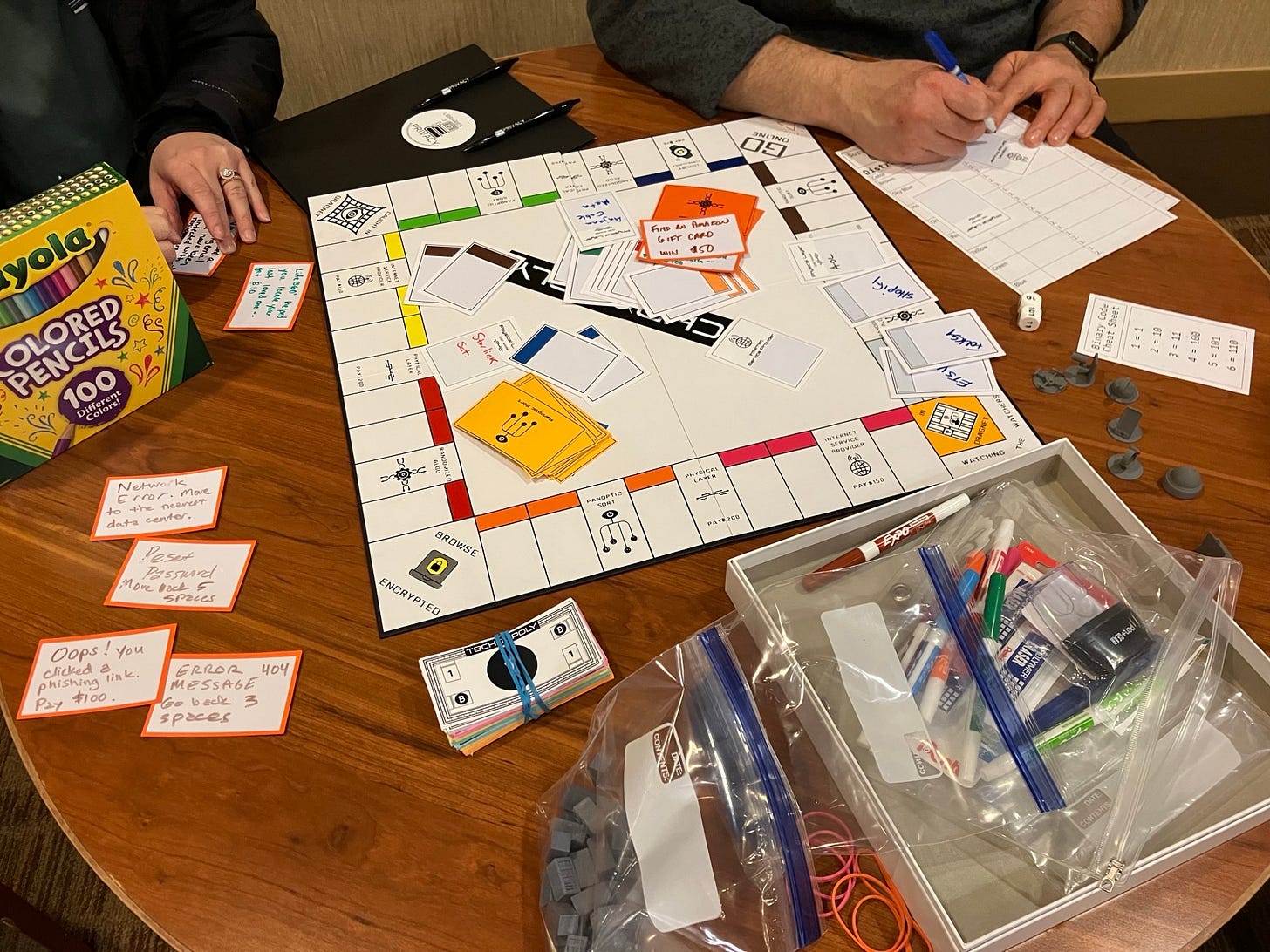
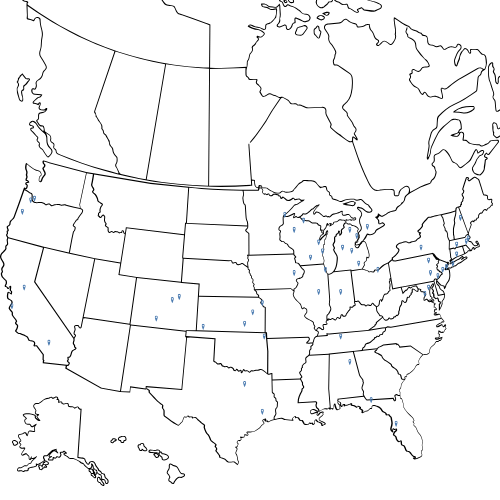
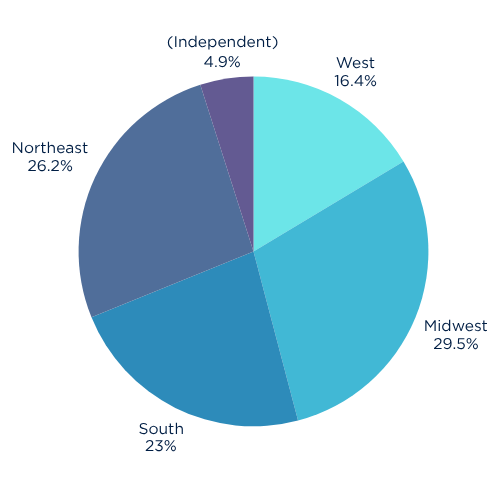
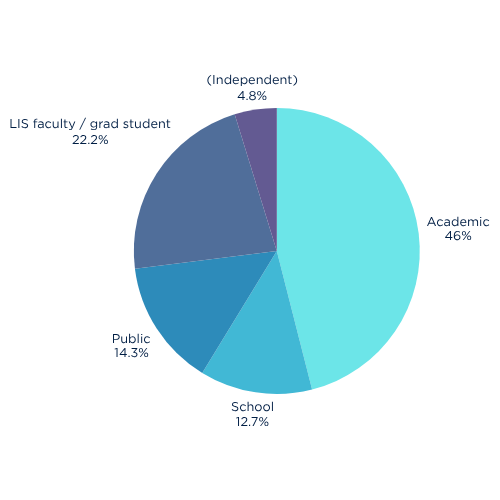
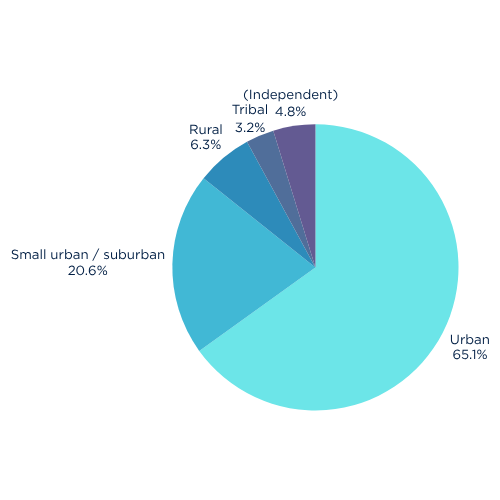
Great work, Sarah--good to see these resources funded in part by the IMLS grant.